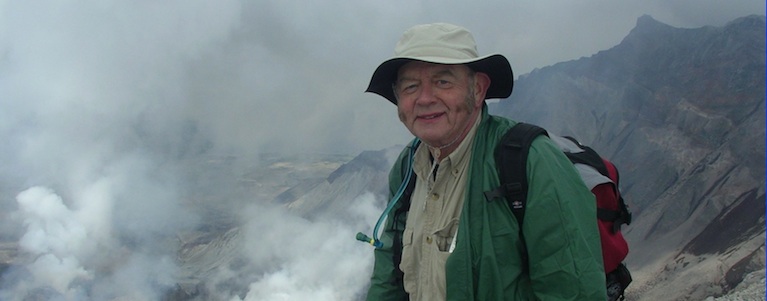Red sky at night; sailor delight! Red sky at morning; sailor no warning?
A huge dust cloud from the Sahara is coming across the Atlantic and will arrive on southern US coast through the next week.
Forecasters say the dust cloud will make extra bright both sunrises and sunsets, and that it will reduce atmospheric instability and thus storms and hurricanes as well.
Info: shpr.fyi/dustcloud
Loss of sense of
smell often precedes COVID symptoms
Anosmia, also known as smell blindness, is the loss of the ability to detect one or more smells. Anosmia may be temporary or permanent.
A study of over 3,000 hospital staff who tested positive for COVID antibodies found 95% of them lost their sense of smell prior to any other symptoms.
Info: shpr.fyi/anosmia
Black Hornet 1 oz. palm-size surveillance drone for combat troops
 In August, US Army troops in Afghanistan deployed a new reconnaissance tool: palm-size drones that weigh just over an ounce. The Black Hornet remote-control micro-copters stream hi-def video and photos, and their diminutive dimensions—and ability to fly without a GPS signal—make them especially adept at ducking into buildings, bunkers, and caves. FLIR developed a proprietary composite to minimize weight without sacrificing durability, so the wee spies can fly in 15-knot wind, remain airborne 25 minutes, and venture as far as 1.5 miles on a charge. Thanks to a revamped rotor design and flight control software that works much like an autopilot, the Black Hornet is unusually easy to fly using a tablet and a pistol-grip-style controller. Soldiers carry one version for daytime use and another equipped with a thermal camera for low-light conditions. Learning to maneuver them takes just minutes, quickly (and dramatically) increasing a squad’s situational awareness.
In August, US Army troops in Afghanistan deployed a new reconnaissance tool: palm-size drones that weigh just over an ounce. The Black Hornet remote-control micro-copters stream hi-def video and photos, and their diminutive dimensions—and ability to fly without a GPS signal—make them especially adept at ducking into buildings, bunkers, and caves. FLIR developed a proprietary composite to minimize weight without sacrificing durability, so the wee spies can fly in 15-knot wind, remain airborne 25 minutes, and venture as far as 1.5 miles on a charge. Thanks to a revamped rotor design and flight control software that works much like an autopilot, the Black Hornet is unusually easy to fly using a tablet and a pistol-grip-style controller. Soldiers carry one version for daytime use and another equipped with a thermal camera for low-light conditions. Learning to maneuver them takes just minutes, quickly (and dramatically) increasing a squad’s situational awareness.
Info: shpr.fyi/palmdrone
Low-cost steroid
cuts COVID deaths
by one-third
Clinical trial of dexamethasone, a low-cost steroid treatment, cut the risk of death by one-third for coronavirus patients on ventilators and one-fifth for those on oxygen.
Info: shpr.fyi/steroid
Ultraviolet light
an alternative
for disinfection
One potential chemical alternative is ultraviolet light. Breckenridge Grand Vacations, which owns 800 rooms across five resorts in the ski town of Breckenridge, Colorado, scooped up 50 Puro UV disinfection lights, which kill pathogens illuminated for 15-30 minutes. The lights are deployed when humans aren’t present, and up to now have been used primarily in hospitals.
Info: shpr.fyi/ultraviolet
Sunlight Disinfects
Sunlight contains three types of ultraviolet light — UVA, which tans your skin (and ages it) and can cause eye damage; UVB, which burns and also ages skin; and UVC, which is “the most harmful one” because it’s quite good at destroying genetic material, explains Juan Leon, a virologist who focuses on environmental health at Emory University. Luckily, he notes, the sun’s UVC rays don’t reach us because they are filtered out by Earth’s atmosphere.
Sunlight can be a good disinfectant with other pathogens. Leon notes that’s why in the developing world, the World Health Organization recommends sterilizing water by putting it in plastic containers and leaving it outside in the sun for about five hours.
The researchers noted that simulated sunlight was capable of rapidly inactivating the SARS CoV-2 on the stainless steel coupons. Results showed that 90 percent of the infectious virus was inactivated in just 6.8 minutes in saliva solution and in 14.3 minutes in a culture media. The sunlight required for this is similar to the summer solstice seen at 40oN latitude at sea level on a clear day, wrote the researchers. They added that similar inactivation was seen at a slower rate when levels of sunlight were lower.
This study is the first to show that UVB levels found in natural sunlight can actually inactivate SARS CoV-2 on surfaces.
Carrying our masks on our dash in sunlight disinfects them.
Info: shpr.fyi/sunlight
